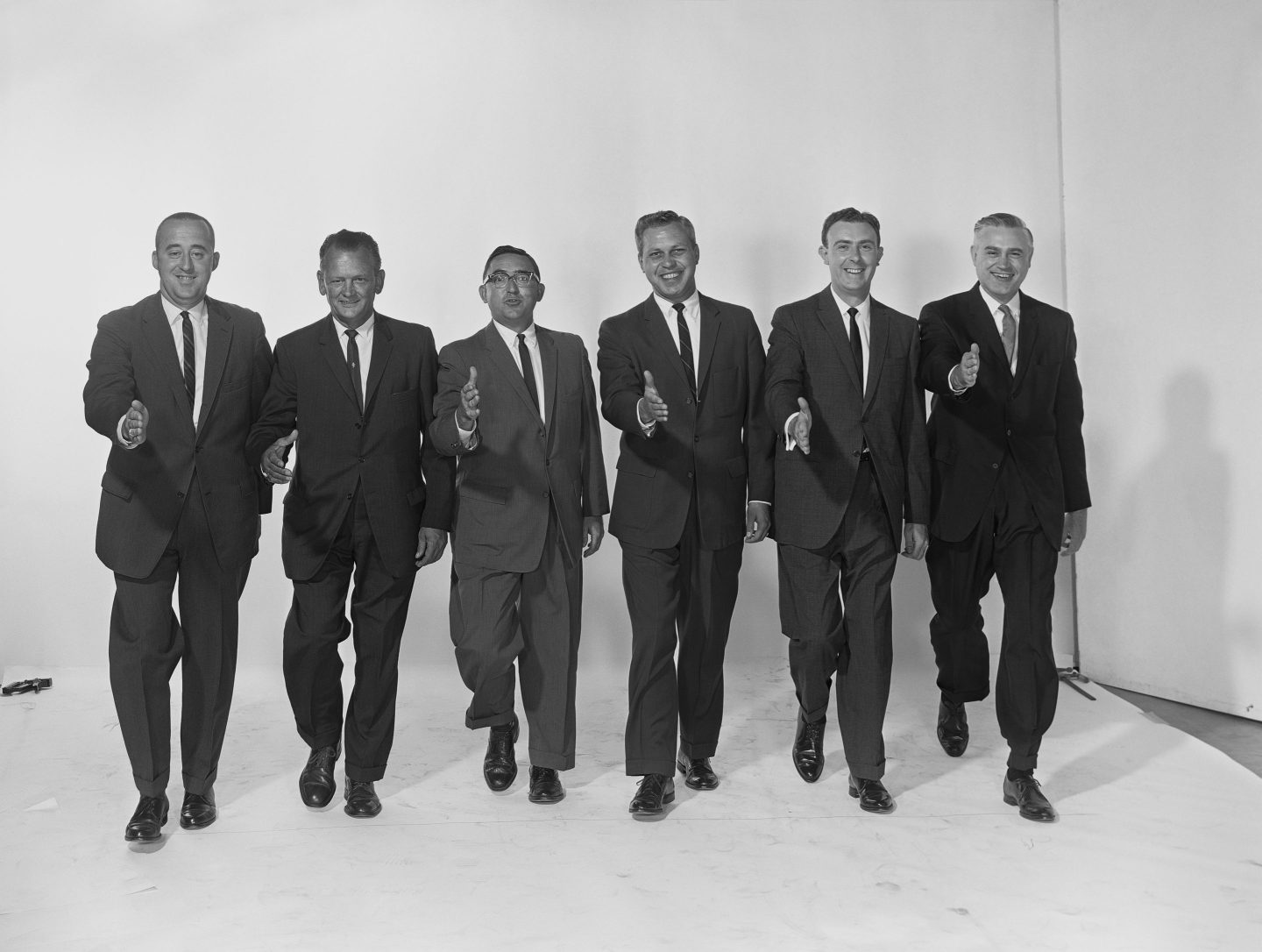This essay originally published in the Sunday, Sept. 22, 2024 edition of the Fortune Archives newsletter.
In 1952, Fortune’s William H. Whyte Jr. diagnosed a malady he had begun to see inflicting an American culture battered by the Great Depression and two world wars: Individuals were losing their individuality, and instead favoring group participation. Decisions, such as what is right or wrong, were increasingly made by the group.
He had recently coined the term “groupthink” to describe this phenomenon, and in Fortune’s March 1952 issue he elaborated:
“A very curious thing has been taking place in this country—and almost without our knowing it. In a country where ‘individualism’—independence and self-reliance—was the watchword for three centuries, the view is now coming to be accepted that the individual himself has no meaning—except, that is, as a member of a group,” Whyte wrote. “Groupthink is becoming a national philosophy.”
Whyte, a renowned sociologist and urbanist who would further develop his groupthink concept into his 1956 best-selling book The Organization Man, didn’t argue against social groupings—“the impulse for association is an instinctive and healthy response,” he wrote—but he disapproved of what he saw as a rising tide of conformity.
“A sense of ‘belonging,’ a sense of meaningful association with others, has never required that one sacrifice his individuality as part of the bargain,” he argued. “Why, then, do so many rush to embrace a philosophy that tells them it is necessary? Why, like the moth, do we fly to the one thing that will consume us?”
Whyte’s explanation? Americans craved freedom from choice. Through group membership, we find security. Through group harmony, we find meaning. Through groupthink, we find absolution.
“Gelded into harmonious integration,” Whyte wrote, the American man “will be free from tensions and frustrations, content in the certainties of his special function, no longer tantalized by the sense of infinity.”
The perniciousness of groupthink is obvious. Progress is often birthed from disagreement and even argument, but groupthink prioritizes unity over dissension. The imagination of what is possible slowly constricts, as fewer ideas are heard.
Now, 72 years after Whyte’s diagnosis, the effects of groupthink have only become more pronounced. Social media and its algorithms have further carved us into niche groups, each with its own worldview and a different set of “facts.”
Discourse is at a practical stalemate, even as this country’s—and humanity’s—most difficult challenges require the most creative solutions.












